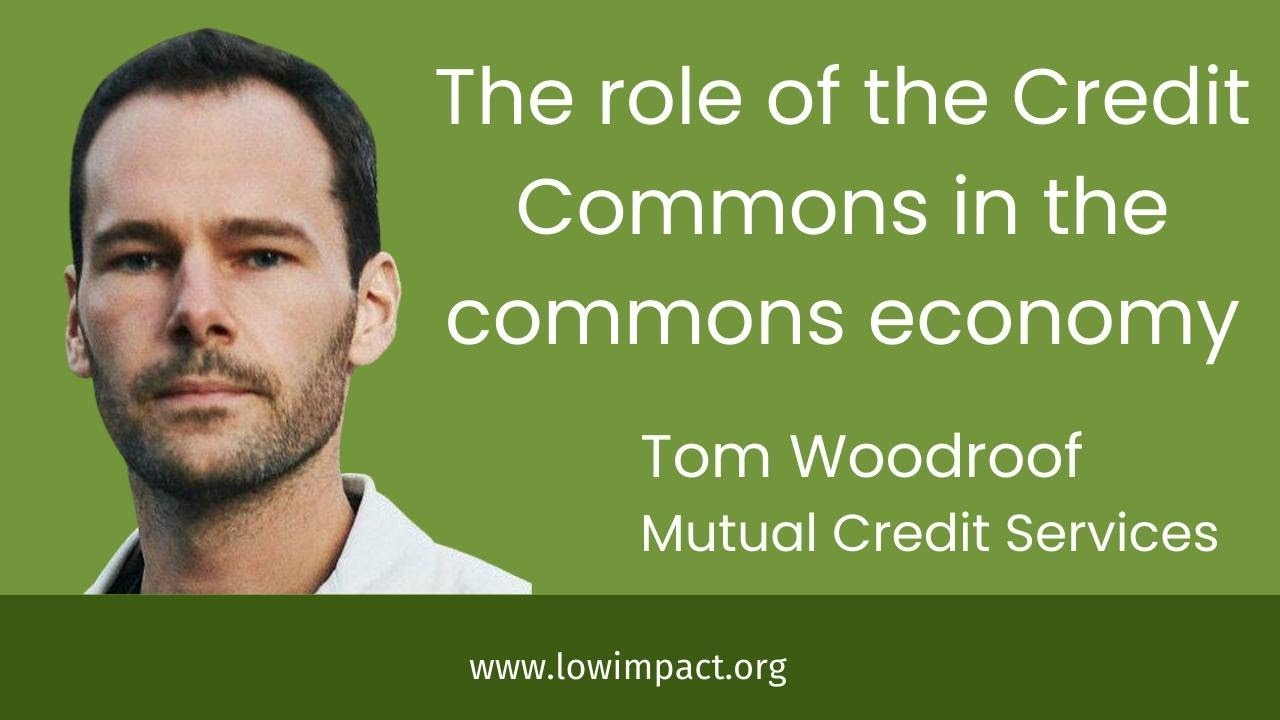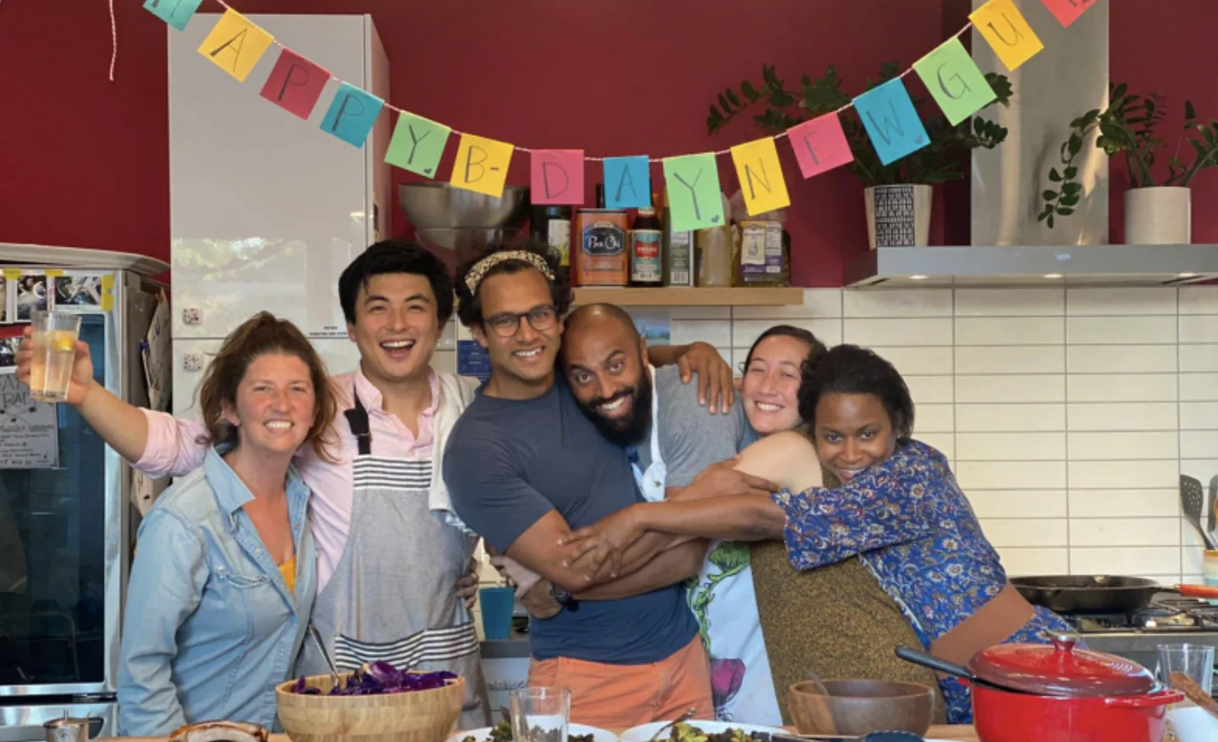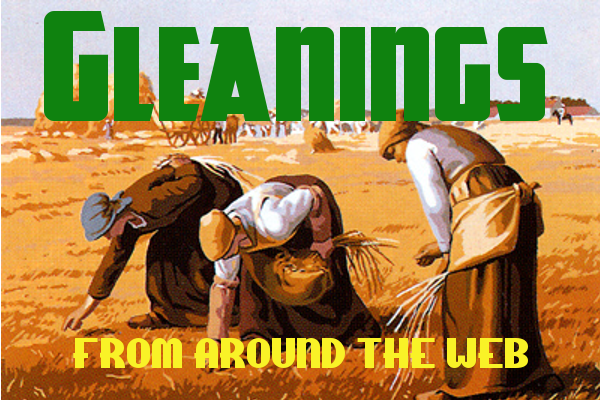This week, Dave Darby speaks with Tom Woodroof of Mutual Credit Services about the vision of a credit commons that connects commoners around the world to leverage everyone's impact, while remaining true to the ethos of decentralization that underpins local credit commons efforts.
Then Kirsten Dirksen heads to Oakland, CA to visit a co-owned "pocket community" that sits on a 1/3rd acre lot and provides a home for 20 adults and 4 children. Seeking the happy medium between private space and community connection, the members of Radish have created an cozy communal oasis for themselves - something they are now helping others do through their Live Near Friends website.
The Role of the Credit Commons in the Commons Economy
by Dave Darby
"The network building itself is much more of a community process. It’s about going out and talking with people, to find out who’s trading with who – finding the conditions under which a mutual credit scheme could make things better. Once you’ve got to that stage, you can set up a ledger, and businesses can have an account. We also have to build a way for them to interact with the ledger that’s user-friendly, intuitive, and speaks to their existing accounting software. Generally, make it as easy for them as possible to start using."
Creating a Co-owned Pocket Community
by Kirsten Dirksen
They started with a group of friends who joined together to create an LLC to buy a lot with 3 buildings, but once California changed the ADU laws, they added 2 extra structures of around 900 square feet each: one now houses a single family, and another is their community house with a kitchen, dining room, living room, and coworking space...They all have their own homes, but they eat dinner together (nowadays, they have hired a cook which they can "afford to split among 20").
Who Actually Owns Nebula?
Medium — But then I watched that Philosophy Tube video. It began with the familiar rhetoric of “Nebula is owned by the creators who are on it”. But there was more. “50% of the equity in Nebula is distributed between the creators”. This was the first time I had heard a Nebula creator say the number 50% referring to ownership. “The other 50% is owned by the parent company, an agency called Standard”. At this point the math really wasn’t adding up. A parent company by definition owns more than 50% of a subsidiary, that’s what makes it a “parent”. Also a 50/50 split would mean there’s no percentage left over for Curiosity Stream. But then there’s the real kicker: “When you’ve been on Nebula for a certain amount of time you get the option to buy a piece of the parent company. Standard actually invented an entirely new kind of cooperative corporate governance to make this happen”...
Beating Extreme Heat as a Community
Shelterforce — When the summer heat hit in 2021, Bed-Stuy Strong had already built a robust food distribution system to assist neighbors dealing with food insecurity. It tweaked that model to create an air conditioner collection and distribution strategy. Bed-Stuy Strong finds donors and recipients through neighborhood flyers, social media, Google Forms, and community events. Most of the group’s donations come from people who are moving or upgrading to a larger AC unit. ACs are housed in a storage unit with the rest of the group’s mutual aid supplies...
Starting a ROSCA to Remove Financial Barriers
Co-operatives First — A ROSCA is an informal alternative to financial institutions that allows people to contribute and withdraw funds. They’re most commonly found in parts of Africa and Asia where there’s limited access to banks and credit unions....Unfortunately, setting up a ROSCA is a little trickier in Canada than elsewhere. Canada’s banking and securities regulations are complicated and expensive to comply with. This means ROSCAs need to be creative when building their operating model. At Co-operatives First, it’s our goal to demystify the start-up process, to remove barriers, and help entrepreneurs take their co-op from an idea to an operating business...
Hudson Grocery Co-op Opens After 11 Years of Organizing
Food Co-op Initiative — In contemporary Western culture it’s easy to romanticize communal lifestyles, just as it’s easy to mock them. Some proponents have sought to distance themselves from mockery or sensationalism through different branding. One reason many residents prefer the term “intentional community” is the departure from the baggage of “commune,” with its whiff of naïve, oversexed counterculture. However, terms can blur as boundaries do, within a communal home...
Like what you find on GEO?
Make a Donation Today!
Your tax-deductible contribution ensures that GEO can continue to provide independent grassroots content about the cooperative and solidarity economy movements.
Got something to say?
Let us know. Send your comments, suggestions, rants and article submissions to editors@geo.coop.
Follow us on Social Media
Mastodon: social.coop/@GEO_Collective
FB: facebook.com/GrassrootsEconomicOrganizing/
Twitter: twitter.com/@GEO_Collective
Our mailing address is:
Grassroots Economic Organizing
P.O. Box 115
Riverdale MD 20738-0115




